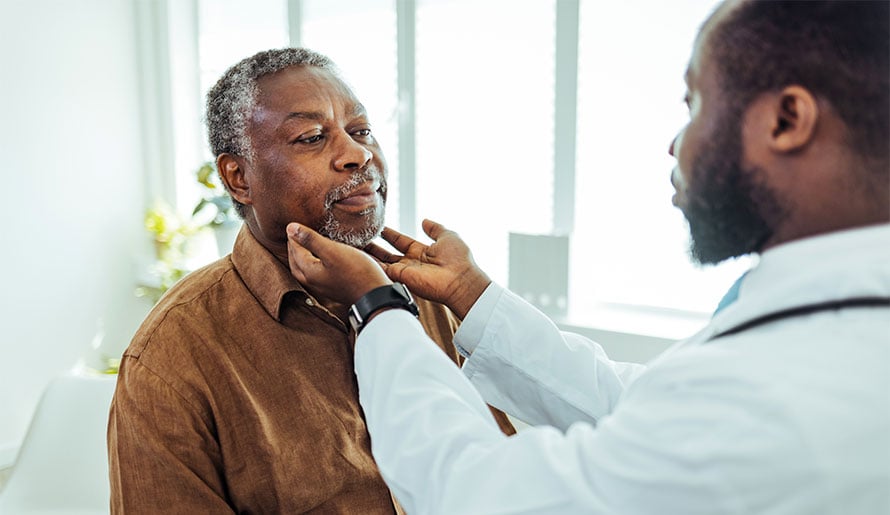Esophageal Cancer Screening

Esophageal cancer screening is extremely valuable for patients who have one or more risk factors for the disease. Although there’s no specific test or scan that has been identified as the “gold standard” in esophageal screening, physicians may recommend options such as an esophagoscopy, a chromoendoscopy, or a fluorescence spectroscopy.
During an esophagoscopy, which is one of the procedures most commonly used to screen a patient for esophageal cancer, a physician will insert a thin, tube-like instrument with a lens at the end into the esophagus by way of the mouth or nose. The physician will then visually check the area for potentially cancerous growths. The physician might also brush off a few cells for microscopic testing (brush cytology) or spray dye into the lining of the esophagus to see if any areas display heavy staining (chromoendoscopy).
Another option is a fluorescence spectroscopy. During this test, a light probe is passed through an endoscope and shined onto the lining of the esophagus. The physician will look for areas that reflect less light than others, which may be indicative of a malignancy. If any abnormal growths are found during one of the previous tests, a physician may remove a small sample (a biopsy) and send it to a lab for further testing. The lab analysis can determine whether the cells in question are cancerous or benign.
Esophageal cancer screening may be especially beneficial for people who:
- Have experienced heartburn once a week or more for more than five years and do not experience any relief from traditional heartburn medicines
- Have a long-term history of smoking
- Have been diagnosed with Barrett’s esophagus, achalasia, tylosis or esophageal webs
- Have been diagnosed with another form of squamous cell cancer that is related to tobacco use
Esophageal cancer screenings may be even more appropriate for people who meet additional risk factors for esophageal cancer, including heavy consumption of alcoholic beverages, carrying excess weight or being a male over the age of 55.
At Moffitt Cancer Center, we can help you determine if esophageal cancer screening is suitable for your specific situation. You don’t need to have an esophageal cancer diagnosis – or even a physician’s referral – to meet with our team. For more information, or to schedule a consultation with one of our esophageal cancer screening experts, call 1-888-663-3488 or request a new patient appointment online.
